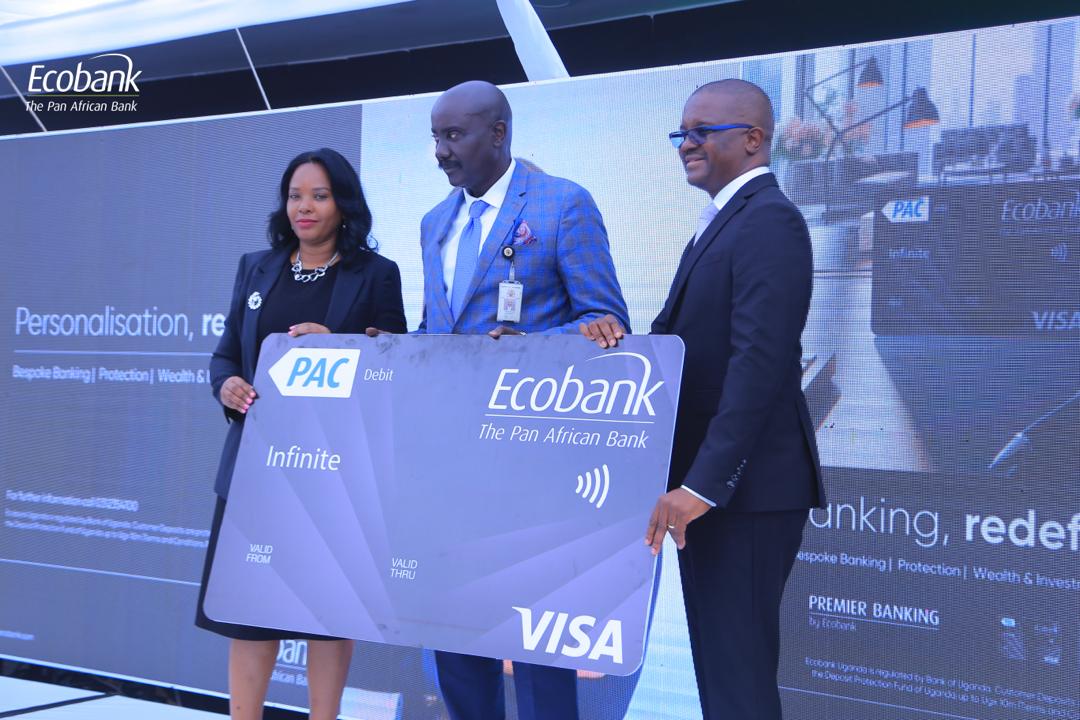We are a big market, Museveni tells Salaam

President Museveni (centre) with Djibouti Minister of Foreign Affairs Mahmoud Ali Youssouf (right), Office of the National Chairperson head Hadijah Namyalo and officials of Salaam Bank during its grand opening at Kololo Independence Ground on March 27, 2024. Photo/Abubaker Lubowa
What you need to know:
- Islamic banking is a form of banking based on Islamic principles. Basically, in Islamic banking, it is not allowed to pay and receive interest but rather on profit sharing
President Museveni yesterday launched Salaam Bank Ltd, which offers Islamic banking services, at the Kololo Independence Grounds in Kampala.
Salaam Bank Ltd, a subsidiary of Djibouti-based Salaam Group, is the first bank to receive an Islamic banking licence from the Bank of Uganda (BoU), which was awarded in September last year.
Mr Museveni said there is a need for all Ugandans, including Muslims, to join the money economy by engaging in sectors that will financially uplift their lives.
“I welcome Salaam Bank to Uganda. This is a big market with a population of 48 million now and in the next 27 years, the population of Uganda will be 106 million. You are going to start right away to serve the people of Uganda,” he said.
Islamic banking prohibits paying or receiving of interest (riba). It is, however, based on profit sharing. Islamic banks focus on generating returns on investments through investment tools that are Sharia compliant.
The Djiboutian Foreign Affairs and International Cooperation minister, Mr Mahmoud Ali Youssouf, said Salaam Group aims to broaden the scope of its activities all over the continent including Uganda, which he said has a safe and solid financial institution.
The Board chairman of Salaam Bank in Uganda, Mr Ibrahim M Abdirahman, said the Mr Museveni’s assenting to the Income Tax Amendment Bill No.2 of 2023, which operationalised Islamic banking, was timely.
“The establishment of an Islamic Bank marks a significant milestone in Uganda’s journey towards economic empowerment and inclusive financial growth,” he said.
He added: “Islamic finance offers, among others, Sharia-compiled bonds from which the government can raise capital for various infrastructure and projects. We are hopeful that the government of Uganda will embrace this opportunity because of its immense benefits.”
The national coordinator of the Office of the National Chairman (ONC), Ms Hadijah Namyalo, appealed to the President to find avenues of ensuring that Muslims also benefit from the Parish Development Model (PDM) by allowing their money to pass through Salaam Bank.
“We want to get rich as well but cannot annoy [Allah] …..we partnered with Salaam Bank to ensure that this function takes place. On behalf of other Muslims, I request you to guide us on how we shall also benefit from the government,” she said.
In response, Mr Museveni said he will soon meet the leadership of Muslims in the country, to discuss avenues through which they can benefit from government programmes.
“If your sheikhs convince me that the PDM and Emyooga money have some contradictions as per the Islamic teachings, then I will find a way to send your money directly to this bank,” he said.
Mr Museveni noted that previous government programmes including Entandikwa, National Agricultural Advisory Services (Naads), Operation Wealth Creation, and Emyooga were interest-free, “and I am yet to know how many Ugandans benefited from them”.
“These were in the form of grants and it had nothing to do with riba. The riba issue came into place recently when we launched the Parish Development Model,” he said.
He added that National Resistance Movement (NRM) doesn’t believe in discrimination and they serve all Ugandans equally irrespective of their religions or tribes. He said such attribution has enabled the country to develop socially and economically.
How Islamic Banking operates
According to Investopedia, Islamic banking, also known as Islamic finance or Shariah-compliant finance, are financial activities that adhere to Sharia (Islamic law). Two fundamental principles of Islamic banking are the sharing of profit and loss and the prohibition of the collection and payment of interest by lenders and investors.
There are more than 560 banks and over 1,900 mutual funds around the world that comply with Islamic principles. In Uganda, only Salaam Bank, a subsidiary of Djibouti-based Salaam Group offers this service.
It operates on principles such as profit and loss sharing, risk-sharing, and asset-backed financing, where transactions are structured to comply with Shariah principles (Islamic laws), avoiding interest charges and speculative activities.
Under the debt-like financing structures known as Murabahah, the Salaam Bank chief executive officer, Mr Micheal Mande, said the bank buys an asset on behalf of the customer and sells it to the customer at a markup.
Mr Michael Mande, the chief executive officer of Salaam Bank, said: “You [client] will do all the due diligence, negotiate the price and finish all the paperwork and the bank will just come in to help you in making payments. One will ask how we make profits internationally. It is accepted that when buying anything in cash, the price is always lower but if it is deferred payment, one adds some little profits which we shall be getting.”
Another category called Mudarabah (silent and active partner) is where the bank, which is the silent partner, enters a partnership arrangement in which they provide funds to a customer for investment in a business venture.
“Both of us shall then share the profits accruing from the investment in accordance with a pre-agreed ratio, but any losses are borne by the financial institution, except where it is confirmed that the losses arose due to the borrower’s negligence, in which case the borrower bears all the losses. In this contract, the bank is mandated to engage in the day-to-day management of the business/project,” he said.
The bank is located on Rwenzori Towers opposite the head office of the National Water and Sewerage Corporation in Nakasero, Kampala.




